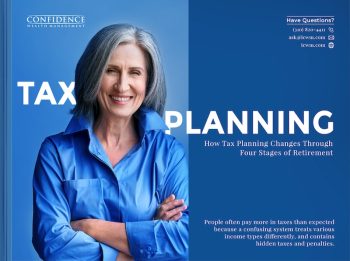When you’re a business owner with an estate, you have a tough decision ahead of you: how should you distribute it?
Equal is usually considered fair. This is because when everyone gets an equal cut of something, it makes it hard for any of them to argue they were mistreated and to alleviate family discord.
But is equality always fair?
What if one of your children has contributed a lot more to the business than the others? What if one of them took an action that made a real difference to your wealth?
Some assets will have a different value for different heirs. For example, a piece of the business may mean job security or a continuation of the family legacy to the child who contributed more to the business. Whereas for another heir, it might mean a quick liquidation or burden.
How you distribute your estate is up to you, but if a fair distribution is something you desire and you own a closely held business, making the right decision can be challenging.
Here are some solutions when equalizing your estate distributions as a business owner.
Sell the Business
If you plan to sell your business, then you have no problem because cash proceeds are easily divisible.
Things get tricky when you have one or more children with different plans for their futures. Perhaps one of them wishes to succeed you but would still like the others to share in that success, or you have only a few nonbusiness assets to share among them.
So, if you’re in a situation like this, selling the business may not be an option.
Joint Ownership
Also known as joint tenancy, this is a way that two or more people, called joint tenants, can own something together. Each joint tenant owns a piece of the asset and can use it as they see fit.
Joint tenancy allows you to avoid probate, which can be time-consuming and costly. If one joint tenant passes away, the property automatically passes to the surviving joint tenants.
Using this method, you can equalize distributions to your participating and nonparticipating children by granting them joint ownership of your closely held business. As joint owners, they each own an undivided and equal interest in the entire business.
Nonvoting Stock
This is stock that is issued without voting rights. It allows your nonparticipating children to share ownership of the business without having any control over business decisions and operations.
This can be a good option if one child has taken the lead on following you as a managing owner, but the others deserve to share in its success.
Minority Position with Buy-Sell Over Time
This is a way to pass control of the business to your participating children and draw cash out of the business for distribution to your nonparticipating children.
The cash is generated by forcing the company to repurchase your shares of stock upon your passing by using a buy-sell agreement.
The major concern here is to ensure your company is in a healthy situation so that the purchasing of its shares for cash doesn’t threaten its position.
Spin-Off
A spin-off is a way to leave a portion of your business to your participating children and sell off the remaining portion. Proceeds from the sale will provide cash for your nonparticipating children.
Life Insurance
This is a way to leave the family business to your participating children and leave the life insurance proceeds of equal value to your nonparticipating children.
For example, if your business purchases a life insurance policy that will pay a child $80,000 upon your passing, then leave $120,000 of non-business assets to that same child while leaving the business, valued at $200,000, to a second child, then each child will receive $200,000.
Shareholder Agreement
This can be used to leave equal amounts of stock to each child, ensuring that the stock remains in the family, and allowing children an option concerning their inheritance.
Participating children have the opportunity to buy their siblings’ stock, while nonparticipating children have the option to sell their stock, but only after offering the participating children the first option to buy.
Will or Trust with Equalization Clauses
A will or trust with an equalization clause directs your executor to equalize treatment among children before making final distributions of your wealth. This works only if you have sufficient nonbusiness assets to distribute to the nonparticipating child.
What Else Should You Consider?
There are several factors you should keep in mind, including:
- How much control does each child have over the business? Consider who will control the family business and whether that control should be shared.
- When you transfer business assets to your nonparticipating children, you may also be transferring a degree of control to them, so you will want to determine whether this is appropriate and plan accordingly.
- What sources of funding are available? Many planning solutions require funding. Often an equalization plan provides that stock must be repurchased or redeemed.
- The source of funding might be a life insurance policy, future profits of the business, a partial sale of business assets, or the personal savings of your children.
- The source and availability of funds may be a factor in determining which planning solution you adopt.
- How will the timing of distributions affect your children? Several planning solutions provide that nonparticipating children receive a stream of payments over years rather than a lump-sum inheritance.
- Some planning solutions may require participating children to temporarily share ownership of the family business until a future date.
- Timing considerations should be evaluated per your family’s needs.
- Is your business likely to remain liquid? The success of several planning solutions is contingent on the future success of the business.
- Some of your children may be relying on the performance of other children for their inheritance.
- The degree to which you are comfortable with such an arrangement may help you in choosing a strategy for equalizing distributions.
Conclusion
Between your desire for your legacy, your children’s future well-being, and their relationships with each other, this can be emotionally fraught territory. Knowing how to pick or craft the best option so that you equally satisfy everyone’s concerns is paramount.
As experienced financial professionals, we help clients like you figure out the best strategy for their situation so that they protect their family’s future happiness and success.
Please connect with us and let us help you solidify your family’s future. We would be delighted to go on the journey with you.








